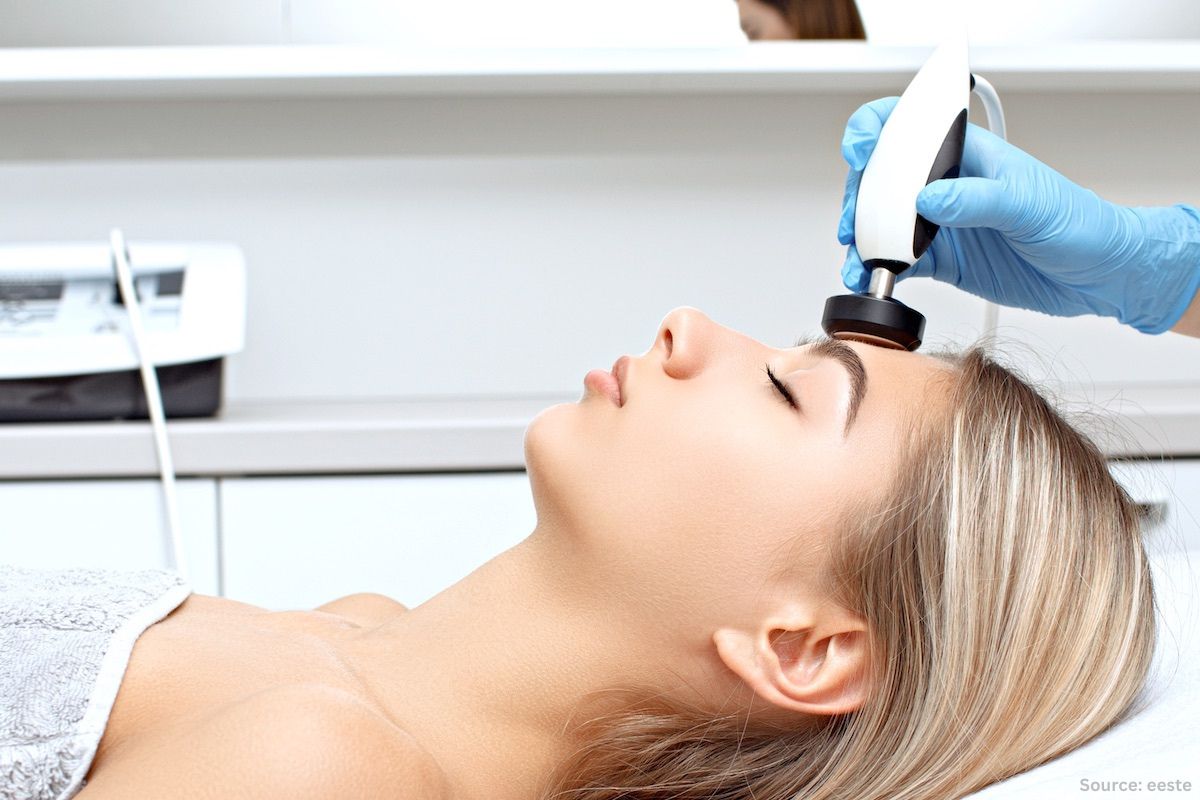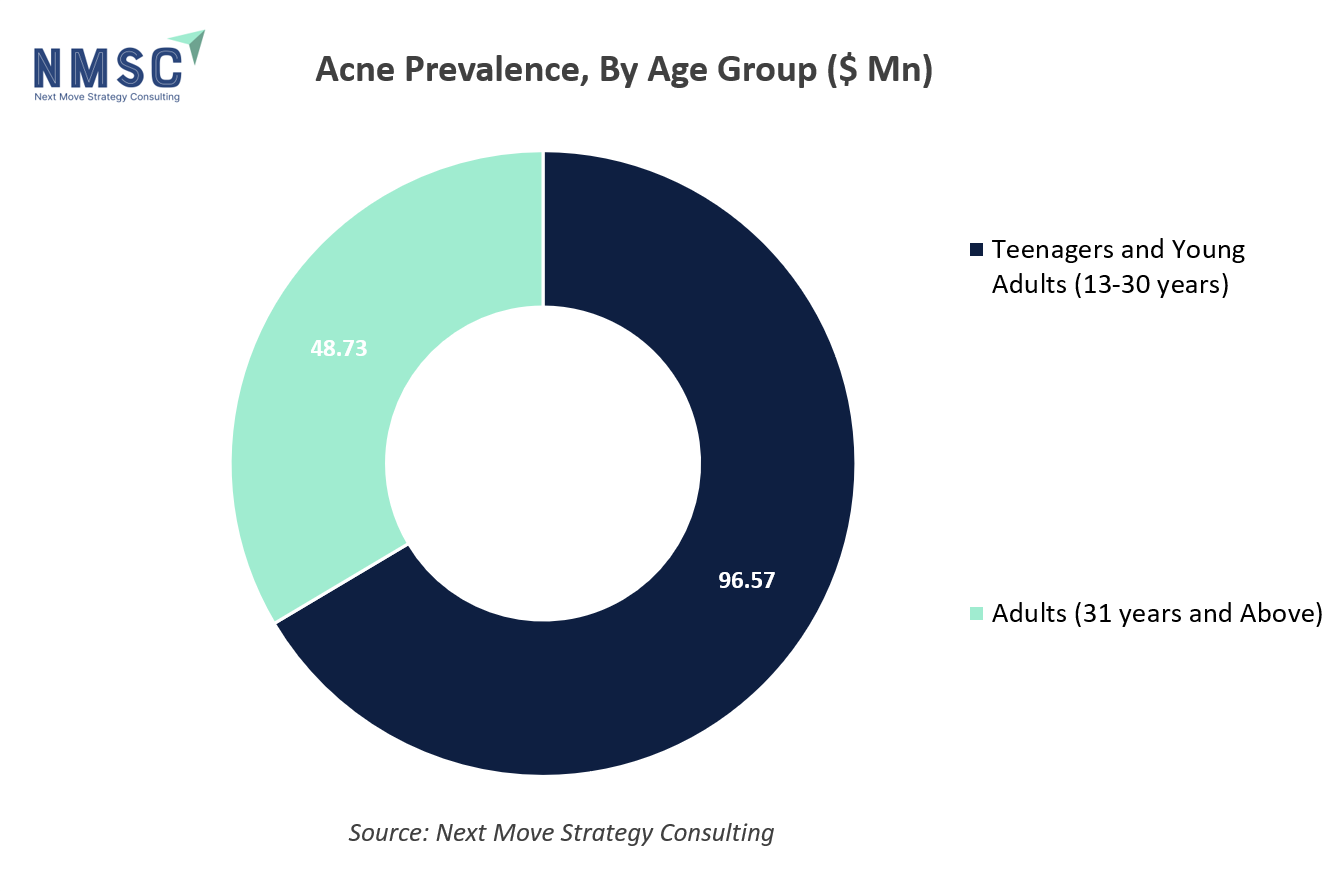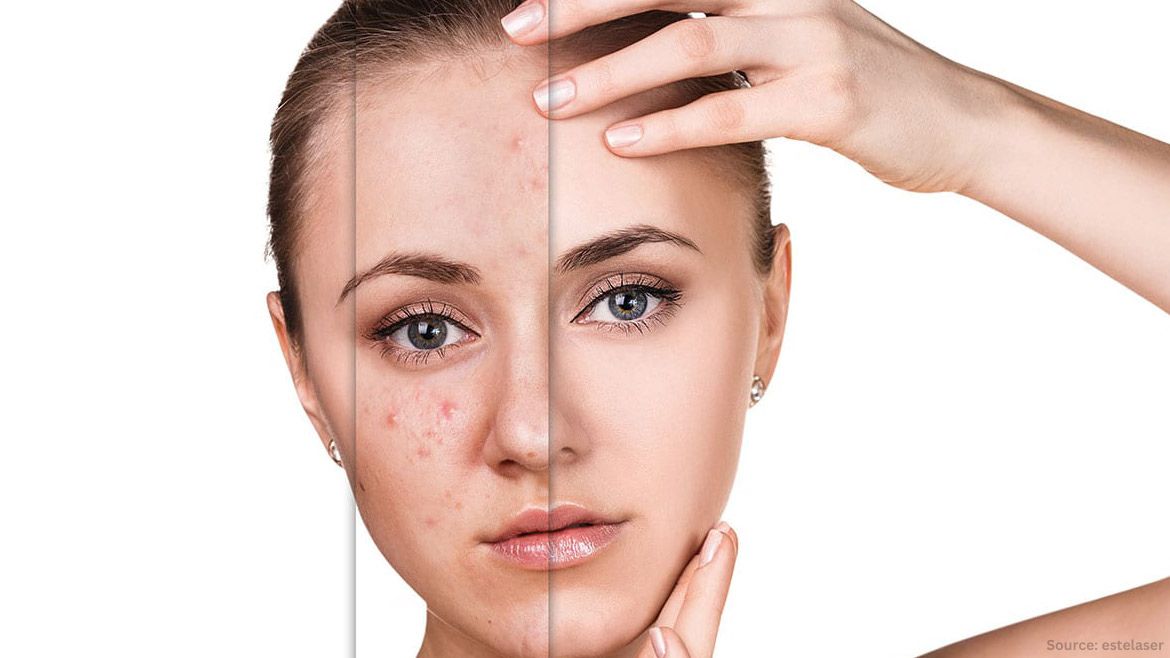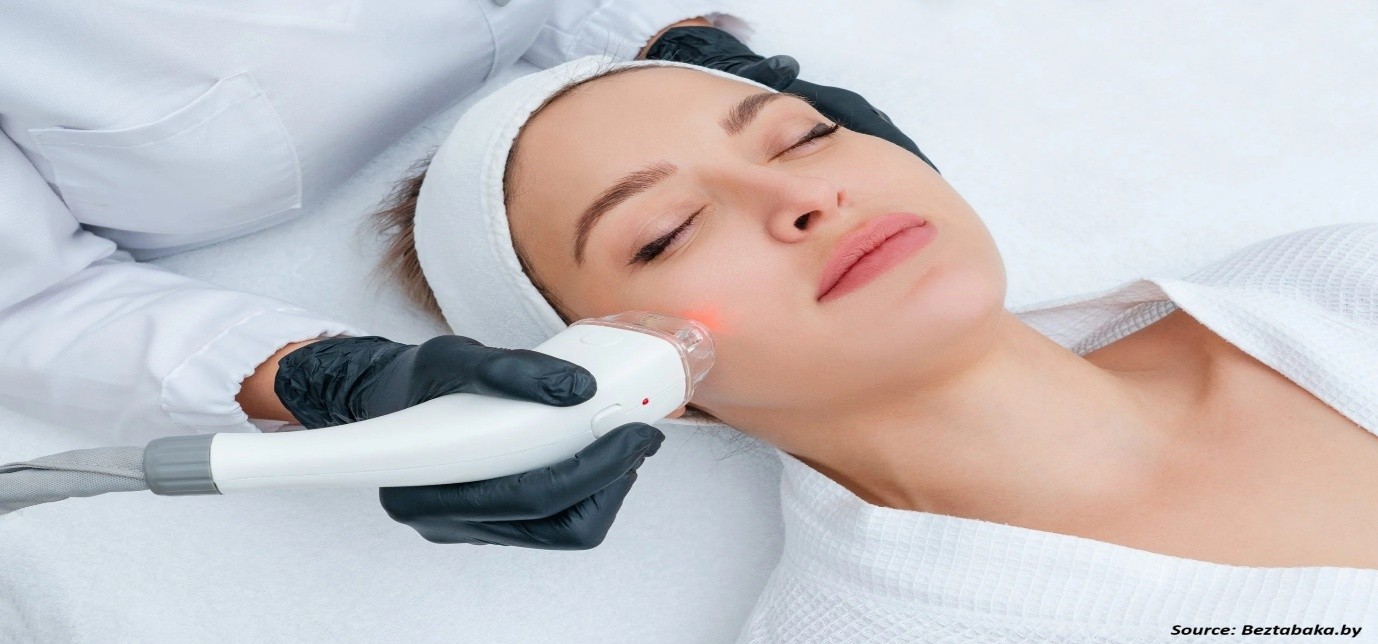The Impact of AI on the South Korean Professional Acne Medication Market
26-May-2025

Introduction: A Technological Shift in Skincare
South Korea, a renowned leader in K-beauty, is experiencing a significant transformation in its professional acne medication market due to the introduction of AI-driven skin diagnosis technology. This innovative approach offers more personalized and effective care for individuals struggling with acne, especially when over-the-counter solutions prove inadequate. By blending its established beauty culture with a strong technological infrastructure, South Korea is at the forefront of integrating science and skincare to address acne on a global scale.
The Revolutionary Role of AI in Acne Treatment
Artificial intelligence (AI) is fundamentally changing how acne is approached in South Korea's beauty industry. Traditionally, dermatologists relied on general assessments, and individuals often resorted to trial-and-error with various products. However, AI introduces a new level of precision in skin analysis. Through advanced algorithms, AI can identify different acne types, their severity, and even potential underlying causes such as hormonal imbalances or stress. This technology enables the creation of tailored treatment plans in a matter of minutes after a skin analysis, a process once considered science fiction.
This development addresses the increasing consumer demand for personalized skincare solutions that move beyond generic treatments. AI-driven diagnostics utilise high-resolution imaging and data analysis to distinguish between inflammatory and non-inflammatory acne, monitor the effectiveness of treatments, and make adjustments in real-time.
Curious for South Korean Professional Acne Medication Market? Click Here to Request Sample
Key Ways AI is Transforming the Market
AI is having a profound impact on the professional acne medication market in South Korea through several important avenues:
- Hyper-Personalized Treatment Plans: AI enables the development of treatment plans that are highly individualized, taking into account a person's unique skin type, lifestyle, and environmental factors. For example, in humid conditions, lighter product formulations might be recommended. Clinics are now employing devices capable of scanning deeper skin layers to detect issues like excess sebum or inflammation that are not visible on the surface. This level of diagnostic accuracy leads to faster results and reduces wasted time and resources on ineffective treatments.
- Enhanced Efficiency for Dermatologists: AI systems can automate initial patient assessments, allowing dermatologists to dedicate their expertise to more complex dermatological cases. These smart systems can rapidly process vast quantities of skin images, identify potential issues, and suggest evidence-based medications or therapies. This efficiency is particularly valuable in a market where high beauty standards drive expectations for quick and reliable solutions.
- Boosting Medical Tourism: South Korea's standing as a destination for medical tourism is being further enhanced by AI technology. International patients seeking advanced dermatological care are attracted to the efficiency and precision offered by AI-driven diagnostics. Clinics can offer online consultations and have English-speaking staff, allowing for preliminary skin assessments before a patient's arrival. This accessibility broadens the market, attracts international revenue, and reinforces South Korea's reputation for skincare innovation.
- Data-Driven Solutions to Market Challenges: The professional acne medication market has historically faced challenges related to high treatment costs, often leading consumers to choose cheaper over-the-counter alternatives. AI has the potential to mitigate these costs by optimizing treatment plans, reducing the need for extensive trial-and-error approaches. Furthermore, the analysis of large datasets allows researchers to identify significant trends, such as acne spikes due to mask-wearing during pandemics, enabling the development of targeted and responsive solutions.
South Korea's Leading Role: A Cultural and Governmental Alignment
South Korea's leading position in integrating AI into skincare is supported by a combination of cultural values and government initiatives. The strong cultural emphasis on achieving flawless skin, exemplified by the global K-beauty phenomenon, creates a receptive market for advanced aesthetic technologies. AI aligns well with this cultural value by providing a scientific basis for aesthetic pursuits. The government's active support for bio-health advancements, including personalized skincare technology, is also crucial. National initiatives focused on the Internet of Things (IoT) and big data infrastructure further facilitate the development and implementation of AI-driven solutions, making South Korea an ideal environment for their practical application.
South Korea has established a legal framework for AI with the Basic Act on Artificial Intelligence and Creation of a Trust Base, set to take effect in January 2026, emphasising transparency, safety, and ethics. This law defines key AI concepts like high-impact AI, mandates notification to users and clear labelling, requires risk mitigation and impact assessments for high-impact AI, and outlines enforcement and penalties for violations, applying to all AI activities impacting the South Korean market.
The significant influence of social media also fuels consumer demand for cutting-edge treatments. Younger Koreans, influenced by the seemingly perfect complexions of K-pop idols, actively seek the latest and most effective skincare interventions. AI-driven solutions cater to this demand for rapid and visible results, transforming dermatological clinics into high-tech beauty centers. This dynamic encourages domestic companies to priorities innovation and meet the desires of a consumer base that actively seeks the newest technological advancements.
Recent Innovations in AI-Driven Acne Treatment
The South Korean professional acne medication market has seen exciting recent launches that demonstrate the practical application of AI:
- Lululab’s LUMINI Upgrade: This upgraded device offers AI-powered skin analysis in just 10 seconds and features enhanced deep-layer scanning. The introduction of LUMINI HOME, a home-use smart mirror, allows users to track their acne progress daily and receive real-time product recommendations.
- COSRX Master Patch Intensive 2.0: This upgraded version of the popular hydrocolloid patch now integrates AI analysis via a companion app, providing guidance on patch usage based on acne severity and individual skin conditions.
- SmartSKN’s K-OWN Platform Expansion: This platform utilizes AI for real-time diagnostics and the production of 3D-printed personalized skincare products. Recent expansions include acne-specific formulas, enabling users to customize active ingredients.
- Galderma Korea’s AI-Enhanced Restylane Line: While initially launching Restylane Eyelight, Galderma Korea has indicated plans for an AI-driven acne treatment line for 2025, potentially combining fillers with targeted medications.
- DERMATECH’s Microneedle Patch Innovation: These AI-guided microneedle patches deliver active ingredients directly to acne-prone areas, with the AI system adjusting the release rate based on skin feedback.
These developments highlight the industry's commitment to meeting consumer needs through the strategic integration of AI, merging established K-beauty principles with technological advancements.
The Future Potential of AI in Acne Care
Looking ahead, AI holds immense potential for the South Korean professional acne medication market. We may see a rise in home-use diagnostic devices, potentially reducing the need for frequent clinic visits for routine management. Furthermore, the integration of AI with wearable technology could enable real-time monitoring of physiological factors like stress and diet and their correlation with skin health.
Addressing challenges related to data privacy and initial implementation costs will be essential for fully realizing the potential of this technology in expanding access to effective acne treatments globally. The current industry focus remains on refining AI diagnostic tools, with significant investment expected in research and development to ensure diagnostic accuracy comparable to human expertise. The continued growth of medical tourism and e-commerce channels presents opportunities for significant market expansion and global reach.
Conclusion: Embracing a Smarter Approach
In conclusion, AI-driven skin diagnosis is revolutionizing the South Korea professional acne medication market in due to its capacity to deliver personalized treatments and drive innovative product development. This technological integration aligns with the nation's strong beauty culture and is having an increasing global impact. The latest innovations from key players in the market demonstrate the increasingly intelligent and effective approaches to acne management now available to both domestic and international consumers.
About the Author
 Sukanya Dey is a passionate and insightful writer with over three years of experience, she excels in providing clients with in-depth research and valuable insights, helping them navigate complex business challenges. She has a keen interest in various industries, including Retail and Consumer, Healthcare, Manufacturing, Automotive, and ICT & Media. Sukanya strives to offer fresh perspectives and innovative solutions through her comprehensive research. She finds immense joy in weaving her thoughts and ideas into captivating articles and blogs, where her passion for literature and art shines through. In her free time, she enjoys reading books, cooking, filming, often drawing inspiration from these activities for her creative writing endeavors. The author can be reached at [email protected]
Sukanya Dey is a passionate and insightful writer with over three years of experience, she excels in providing clients with in-depth research and valuable insights, helping them navigate complex business challenges. She has a keen interest in various industries, including Retail and Consumer, Healthcare, Manufacturing, Automotive, and ICT & Media. Sukanya strives to offer fresh perspectives and innovative solutions through her comprehensive research. She finds immense joy in weaving her thoughts and ideas into captivating articles and blogs, where her passion for literature and art shines through. In her free time, she enjoys reading books, cooking, filming, often drawing inspiration from these activities for her creative writing endeavors. The author can be reached at [email protected]
Add Comment
Related Blogs
South Korea Professional Acne Medication Market Set to Double by 2030: Leading Companies Driving Dermatological Innovation and Skincare Advancements
South Korea Professional Acne Medication Market is anticipat...
A Look at the Latest Innovations in the Sunglasses Market
Eye health issues and style trends are driving the sunglasses market to increase...
Top 5 Innovators Revolutionizing Acne Treatment Today
Next Move Strategy Consulting projects that the Acne Medication Market will grow...













